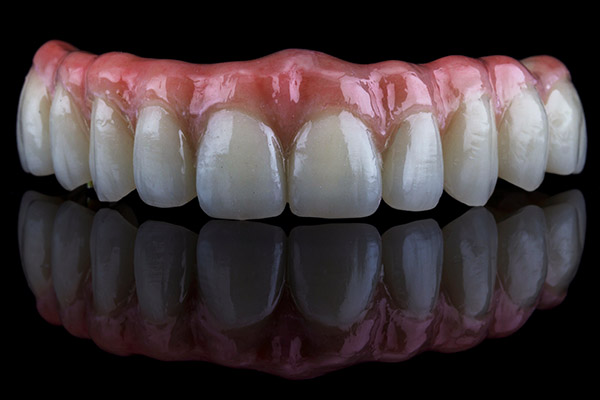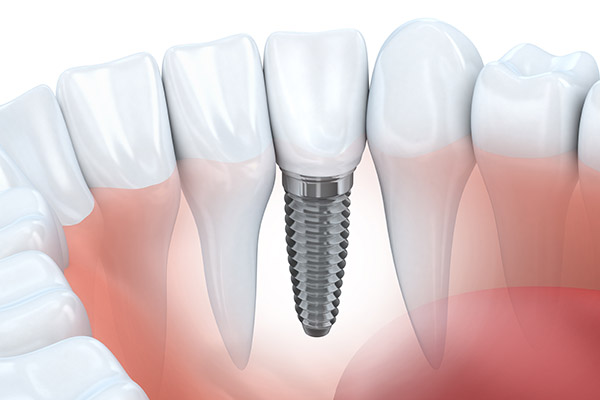A General Dentist Answers What to Expect During Oral Surgery Recovery

If you have just undergone oral surgery, you likely are relieved and happy to be on the way to better oral health. To avoid post-surgical complications and ensure a quick recovery, it is important to have a general idea of what to expect while recovering from a procedure.
Some physical symptoms are normal
As with any surgical procedure, those undergoing oral surgery are likely to experience some physical symptoms afterward. These should usually pass within a few days. If instead a patient's symptoms steadily worsen as time passes, it is a good idea to contact the oral surgeon for advice.
Swelling
Oral surgery causes trauma to the tissues of the mouth, and those tissues swell as they heal. Swelling will typically be worse for two to three days after the procedure. After this, it should gradually lessen as the surgical site begins to heal.
Bleeding
Just like swelling, some bleeding is also to be expected after oral surgery. In most cases, oral surgeons will give patients a gauze pad to cover the surgical wound as the blood begins to clot. Bleeding can continue for a few hours after the surgery, but the mixing of blood and saliva may sometimes cause patients to believe they are bleeding more than they actually are.
Pain
Different surgical procedures result in different levels of pain, and most oral surgeons will prescribe pain medication after the procedure. For patients who want an additional way to manage post-surgical pain, apply cold compresses to the face on the first day after surgery and warm compresses on the days after that.
Some behaviors can jeopardize healing
Most patients want to do whatever they can to ensure a quick and complete recovery after surgery. Each patient’s oral surgeon will be able to offer more specialized aftercare instructions, but there are a few general rules of behaviors to avoid that may be helpful to remember.
Avoid creating negative pressure
Smoking and sucking liquid through a straw both create what is called “negative pressure” in the mouth. This is typically harmless, but for patients newly out of oral surgery, it has the potential to delay healing. This kind of pressure can dislodge the blood clots keeping surgical wounds closed, which leads to increased bleeding and slower healing time. Many people colloquially refer to this issue as “dry socket.”
Avoid alcohol and tobacco
Just about every dentist will tell patients to stay away from smoking after oral surgery. The Canadian Dental Association also advises all patients to avoid alcohol as well as tobacco for two weeks up to surgery. Both substances can potentially delay healing of the surgical site, and they also may make infection more likely.
Conclusion
Undergoing oral surgery can be daunting, but having an idea of what to expect afterward can help reduce anxiety. For many patients, following the instructions of the provider who performed the surgery is all that is needed for a quick and uneventful recovery.
Request an appointment here: https://atlantapamperedsmiles.com or call Pampered Smiles at (404) 891-9489 for an appointment in our Atlanta office.
Check out what others are saying about our services on Yelp: Read our Yelp reviews.
Recent Posts
When it comes to replacing missing front teeth, there are options available. This article reviews some popular tooth replacement options so you can preserve your smile and your health. Due to their position, losing front teeth may undermine your self-esteem and make you less inclined to smile for photographs. However, it is about more than…
Many circumstances might cause you to look into replacing a missing tooth, regardless of your age. Those who do not take care of their teeth and gums are at particularly high risk for tooth loss, as both gum disease and decay can damage gums, tooth roots, and teeth. Cavities can lead to significant damage, as…
Dental crowns are a common restorative solution that protects damaged teeth, improves appearance, and restores proper function. The placement process follows a common step-by-step restoration. Understanding this process can help alleviate any uncertainty you may have before an upcoming appointment and prepare you for what you can expect. Each stage of the dental crown placement…
Implant overdentures may be the best investment when it comes to options for replacing missing teeth. Although you have many options for replacing missing teeth, implant overdentures may be the right option for you. Implant overdentures are known as “snap-on dentures” because the denture connects to the implant via a snap assembly in which a…


